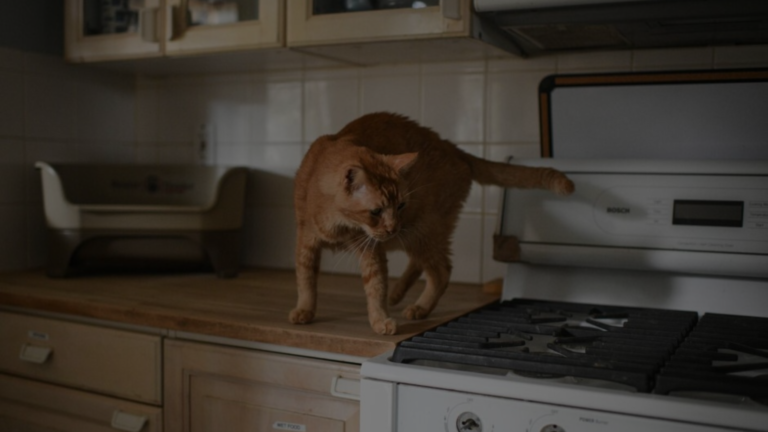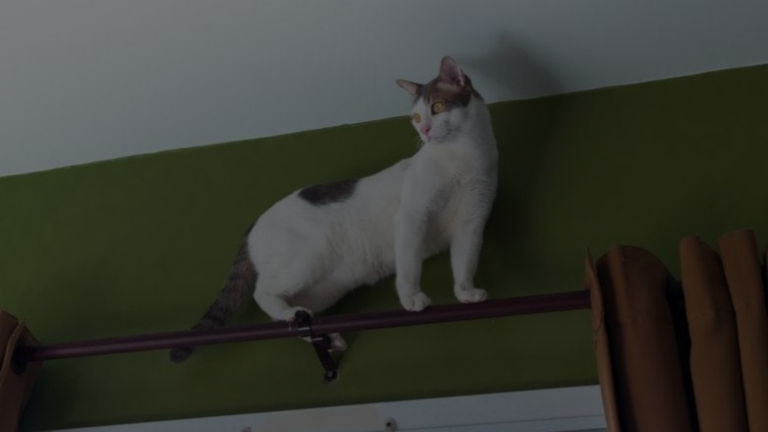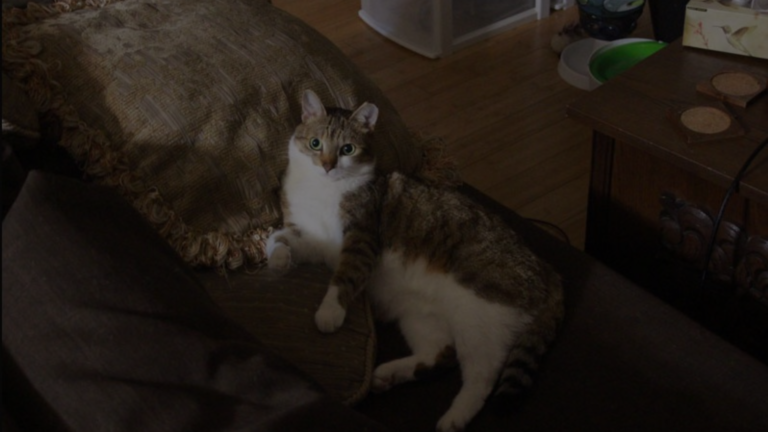Cats, those enigmatic creatures with their independent spirits and aloof demeanors, can leave us wondering: Does my cat love me, or are we simply convenient providers of food and warmth? Deciphering their subtle cues and deciphering their affection can feel like cracking a secret code.
Fear not, fellow cat guardians! This comprehensive guide, complete with a fun and insightful quiz, will help you navigate the murky waters of feline emotions and understand if your furry friend truly holds you dear.
Understanding the Love Language of Cats
While cats may not shower us with the same overt displays of affection as dogs, their love language is unique and nuanced. Here are some key behaviors to watch for:
- Purrs and Headbutts: The rhythmic rumble of a purr is a clear sign of contentment and affection. Headbutts, and gentle nudges with their head, are their way of saying hello, seeking attention, and marking you as their own.
- Kneading and Pawing: This behavior, reminiscent of nursing kittens, signifies comfort and trust. They’re essentially saying, “I feel safe and loved here.”
- Slow Blinks and Eye Contact: A slow blink, often accompanied by a relaxed posture, is the feline equivalent of a loving smile. It’s a sign of trust and affection, so blink back slowly to show you reciprocate.
- Sleeping on You or Near You: Sharing your personal space is a significant act for a cat. Curling up on your lap, sleeping next to you, or kneading on your chest indicates they feel safe and secure in your presence.
- Grooming You: Licking your hair or gently nibbling on your ear is a social behavior cats use with their littermates and loved ones. It’s a sign of affection and bonding.
- Gifts (Dead or Alive): While not always the most pleasant offering, a cat presenting you with a “gift” – a dead mouse, a feathery toy, or even a crumpled piece of paper – is their way of sharing their prized possessions with someone they care about.
- Following You Around: Cats are notoriously independent, so their persistent presence at your heels can be interpreted as a sign of affection and a desire for your company.
- Vocalizations: Meows, chirps, and trills are not just random noises; they’re a cat’s way of communicating. A soft meow, especially when accompanied by headbutts, can be a request for attention or a loving greeting.
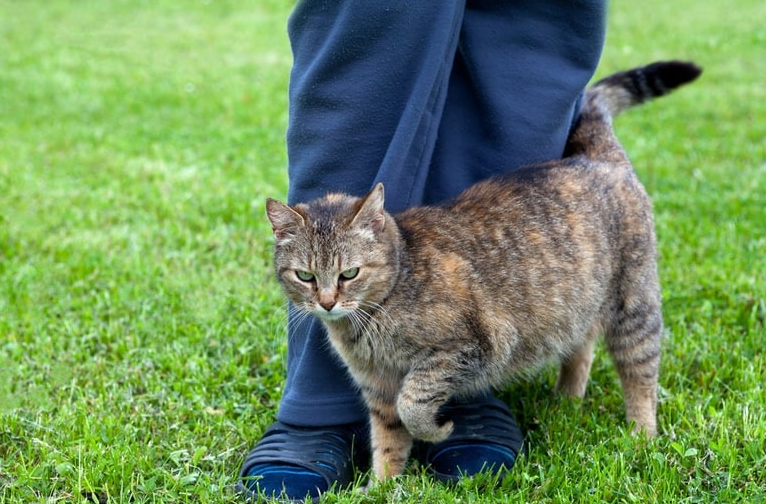
Remember: Every cat is an individual, and their way of expressing affection may vary. Pay attention to your cat’s unique personality and body language to understand their love language.
Take the Quiz: Unveiling Your Feline’s Feelings
Ready to delve deeper into your cat’s emotional world? Take this fun quiz to gauge the level of affection your feline friend feels towards you:
Instructions: Honestly answer each question based on your cat’s typical behavior. Choose the option that best describes your cat’s actions.
How does your cat greet you when you arrive home?
- Runs to greet you with excited meows and rubs against your legs (3 points)
- Acknowledges your presence with a nonchalant meow or head tilt (2 points)
- Ignores you completely (1 point)
How often does your cat cuddle with you?
- Seeks out cuddles frequently and enjoys staying close (3 points)
- Tolerates cuddles for short periods but prefers to be independent (2 points)
- Avoids cuddles altogether (1 point)
Does your cat knead on you or your belongings?
- Frequently kneads on your lap, chest, or blankets (3 points)
- Occasionally kneads on you but not regularly (2 points)
- Never kneads on you or anything else (1 point)
Does your cat groom you?
- Regularly lick your hair, face, or hands (3 points)
- Occasionally grooms you but not frequently (2 points)
- Never grooms you (1 point)
Does your cat follow you around the house?
- Seems to be glued to your side and follows you everywhere (3 points)
- Follows you occasionally but not consistently (2 points)
- Rarely follows you and prefers to be alone (1 point)

How does your cat respond to playtime?
- Gets very excited and actively engages in play sessions (3 points)
- Participates in playtime but with less enthusiasm (2 points)
- Shows little interest in playing with you (1 point)
Does your cat sleep on your bed or near you?
- Regularly chooses to sleep on your bed, cuddled up close (3 points)
- Sometimes sleeps on your bed but not always (2 points)
- Prefers to sleep in other locations (1 point)
Does your cat bring you “gifts”?
- Frequently presents you with dead animals, toys, or other offerings (3 points)
- Occasionally brings you gifts, but it’s not a regular occurrence (2 points)
- Never brings you anything (1 point)
How does your cat react when you pet them?
- Purrs loudly enjoys petting, and rubs against your hand (3 points)
- Tolerates petting but doesn’t actively seek it out (2 points)
- Avoids being petted or seems annoyed (1 point)
Scoring:
- 20-30 points: Your cat deeply loves and trusts you! They shower you with affection in their unique way and enjoy your company immensely.
- 11-19 points: Your cat likely feels affection for you but expresses it more subtly. Pay attention to their cues and continue building your bond.
- 10 or below: Your cat might be unsure about their feelings towards you or might be more independent by nature. Don’t despair! Patience, positive reinforcement, and understanding their personality can strengthen your relationship.
Remember: This quiz is a fun tool to spark reflection, not a definitive measure of your cat’s love. Every cat is different, and their expressions of affection vary greatly. Observe their behavior, respect their boundaries, and shower them with love in ways they understand to nurture a strong and fulfilling bond.
Deepening Your Bond with Your Cat
Understanding and respecting your cat’s individual needs and preferences is key to building a strong and loving relationship. Here are some additional tips:
- Provide a stimulating environment: Cats need enriching activities to keep them mentally and physically engaged. Offer scratching posts, climbing structures, toys, and regular playtime to combat boredom and destructive behavior.
- Respect their boundaries: Some cats are more cuddly than others. Don’t force affection; let them initiate physical contact on their terms.
- Create positive associations: Reward good behavior with treats, praise, and gentle petting. Make sure interactions are positive and enjoyable for both of you.
- Be patient and consistent: Building trust and affection takes time. Be patient, consistent, and respectful of your cat’s personality.
- Seek professional help if needed: If you’re concerned about your cat’s behavior or struggling to connect with them, consult a veterinarian or animal behaviorist for guidance.
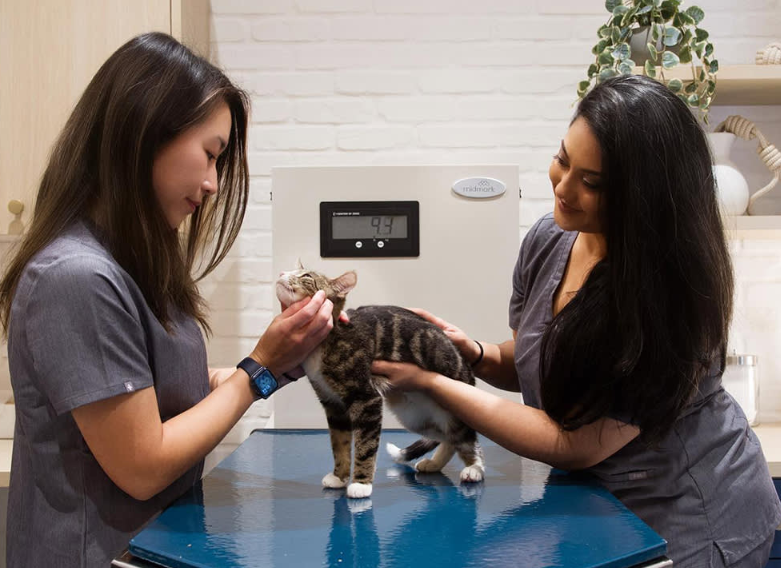
With dedication, understanding, and a sprinkle of patience, you can unlock the secrets of your cat’s heart and nurture a truly special bond that will enrich both your lives.
Resources & References
- American Association of Feline Practitioners: https://catvets.com/
- International Cat Care: https://icatcare.org/
- The Cat Behavior Clinic: https://www.facebook.com/catbehaviorist/
- ASPCA: https://www.aspca.org/
Remember: It’s important to consult with a licensed veterinarian or animal behaviorist for personalized advice regarding your cat’s specific needs and behavior.
FAQs About Whether Your Cat Loves You
My cat doesn’t cuddle – does that mean they don’t love me?
Not necessarily! While some cats are cuddle bugs, others express affection in more subtle ways. Look for signs like slow blinks, headbutts, following you around, and kneading. Pay attention to their style of showing affection.
My cat hisses at me sometimes – does that mean they hate me?
Hissing can be a sign of fear, annoyance, or discomfort. Observe what triggers the hissing and avoid those situations. It doesn’t always indicate hatred, but communication is key.
My cat brings me dead animals – is that weird?
It’s a feline “gift,” showing you their hunting prowess and considering you part of their family. While not the most pleasant offering, it signifies trust and affection in their way.
My cat never purrs – does that mean they’re unhappy?
Not necessarily! While purring is often associated with contentment, some cats purr rarely or only in specific situations. Observe their overall behavior and body language to gauge their mood.
How can I show my cat I love them?
Respect their boundaries, provide a stimulating environment, offer playtime, and reward good behavior with treats and praise. Most importantly, be patient and understanding – building trust takes time.
Should I be worried if my cat doesn’t seem affectionate at all?
Sudden changes in behavior can indicate health issues or stress. If your cat’s demeanor shifts significantly, consult a veterinarian to rule out any medical concerns.




